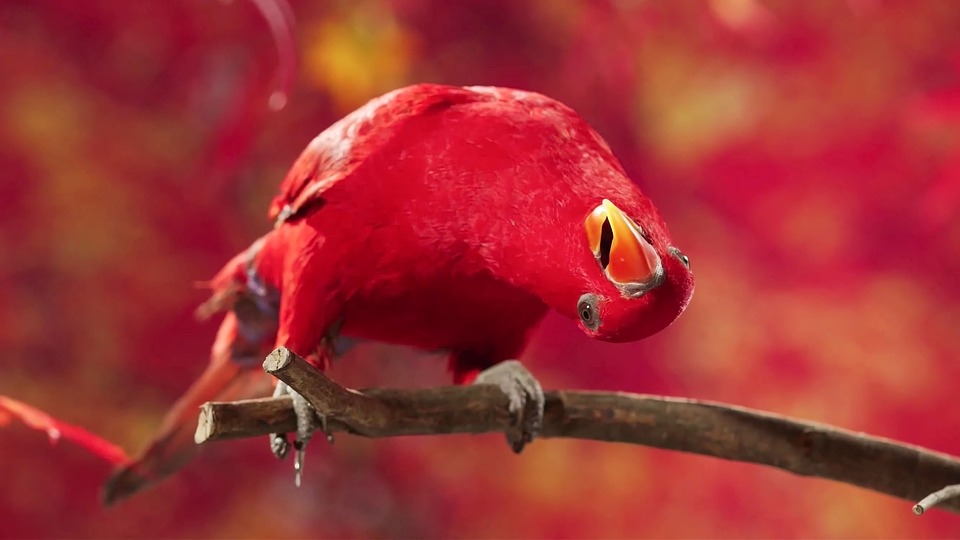Title: How to Discourage Excessive Screaming or Noise During Phone Calls: Effective Strategies for Parrot Behavior Management
Introduction:
Parrots are intelligent and social birds known for their vocal abilities. However, their natural inclination to communicate can lead to excessive screaming or noisy behavior, which can be disruptive during phone calls. In this article, we will explore some effective strategies to discourage such behavior and maintain a peaceful environment. Additionally, we will address frequently asked questions regarding parrot behavior management.
I. Understanding the Causes of Excessive Screaming or Noise
A. Natural Instincts and Behavior
Parrots are highly vocal creatures, and their instinctual behavior includes vocalizing to communicate with their flock. Excessive screaming may be an expression of their natural instincts.
B. Attention-Seeking Behavior
Parrots are social animals that crave attention. They may resort to screaming or making noise to get their owner’s attention, especially if they feel neglected.
C. Boredom or Lack of Stimulation
Parrots require mental and physical stimulation to stay engaged and entertained. Without adequate stimulation, they may resort to excessive screaming or noise as a way to alleviate boredom.
II. Strategies to Discourage Excessive Screaming or Noise
A. Create a Distraction-Free Environment
1. Choose a suitable location for the parrot’s cage away from high-traffic areas or noisy appliances to minimize external distractions.
2. Provide ample mental and physical stimulation through toys, foraging activities, and interactive playtime to keep your parrot engaged and occupied.
B. Establish a Consistent Routine
1. Set designated quiet times or phone call hours when you expect your parrot to remain calm and quiet.
2. Maintain a regular feeding and play schedule to provide structure and predictability, reducing the likelihood of excessive noise during phone calls.
C. Positive Reinforcement Training
1. Reward desirable behaviors, such as being quiet or engaging in appropriate vocalization, with treats, praise, or attention.
2. Utilize clicker training or target training to reinforce desired behaviors and redirect your parrot’s vocalizations to more acceptable forms of communication.
D. Ignore Unwanted Behavior
1. Avoid unintentionally reinforcing excessive noise by not responding to it or providing attention during those moments.
2. Stay calm and composed during phone calls, as reacting strongly to the noise may inadvertently reinforce the behavior.
E. Utilize Background Noise or Soothing Sounds
1. Play soft music or nature sounds in the background to create a calming environment that can help mask or reduce the impact of your parrot’s vocalizations.
2. Use white noise machines or fans strategically to create a consistent background noise that can drown out excessive screaming.
III. Frequently Asked Questions (FAQs)
Q1. Will punishing my parrot for excessive screaming or noise solve the problem?
Punishment is not recommended as it may create fear or anxiety in your parrot, leading to more behavioral issues. Positive reinforcement and redirection are more effective.
Q2. How long does it usually take to see improvements in parrot behavior?
The timeline for behavioral improvements varies for each parrot. It depends on factors such as the parrot’s age, previous training, and consistency in implementing the strategies. Patience and consistency are key.
Q3. Can parrot toys help in reducing excessive screaming or noise?
Yes, providing a variety of toys that stimulate your parrot’s mental and physical abilities can help reduce boredom and, consequently, excessive noise.
Q4. What are some signs of boredom in parrots?
Signs of boredom in parrots may include excessive vocalization, destructive behavior, feather plucking, and lack of interest in toys or activities.
Q5. Are there any specific parrot breeds or species more prone to excessive screaming?
While all parrot species have vocal tendencies, some species like Amazon parrots, Cockatoos, and Conures are known to be more prone to excessive vocalization.
Conclusion:
By implementing these strategies, you can effectively discourage excessive screaming or noise during phone calls and foster a harmonious environment for both you and your parrot. Remember, patience and consistency are key when it comes to modifying parrot behavior. If you have any further questions or concerns, consult with an avian behavior specialist or a knowledgeable avian veterinarian who can provide tailored advice for your specific parrot’s needs.









